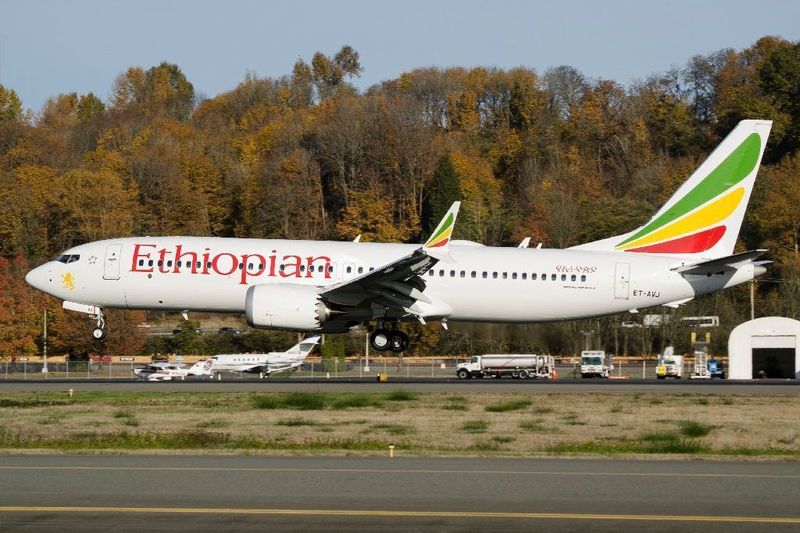The European Union (EU) closed its airspace to Boeing 737 MAX planes on Tuesday, joining similar action by nations across the globe following a second deadly accident in just five months.
Fleets of the best-selling workhorse plane were also grounded by airlines as safety concerns swirled, sending Boeing shares tumbling another seven per cent in Tuesday trading and wiping billions more off its market value.
The widening airspace closures put pressure on Boeing, the world’s biggest planemaker, to prove the MAX planes are safe.
The full extent of the impact on international travel routes was unclear, although there are some 350 MAX 8 planes currently in service around the world with more than 5,000 on order.
The EU aviation safety agency said it was closing European airspace to all MAX aircraft currently operating. It noted that the “exact causes” of the Lion Air crash were still being investigated.
“Since that action, another fatal accident occurred,” EASA said, referring to Sunday’s Ethiopian Airlines disaster.
“At this early stage of the investigation, it cannot be excluded that similar causes may have contributed to both events,” the agency said.
‘Precautionary measure’
India late on Tuesday joined the list of countries to close its airspace to the jet, a day after saying it had imposed additional interim safety requirements for ground engineers and crew for the aircraft.
Elsewhere, Turkish Airlines, one of the largest carriers in the world, said it was suspending its 12 MAX aircraft from Wednesday, until “uncertainty” was clarified.
Low-cost airline Norwegian Air Shuttle, South Korea’s Eastar Jet and South Africa’s Comair also said they would halt flights.
On Twitter, US President Donald Trump weighed in on the situation, writing: “Airplanes are becoming far too complex to fly.”
“Pilots are no longer needed, but rather computer scientists from MIT,” he wrote, referring to the prestigious university in Massachusetts.













